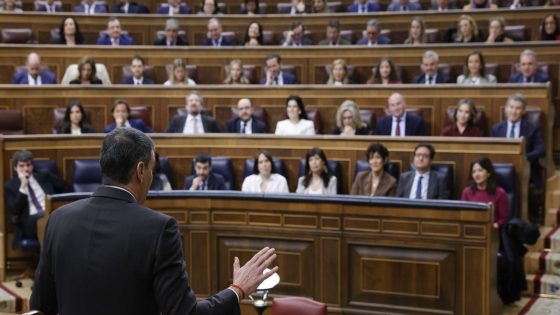On February 26, 2025, Spanish Prime Minister Pedro Sánchez defended the cancellation of €83 billion in debt for autonomous communities. This decision comes amid criticism from PP leader Alberto Núñez Feijóo, who labels it a “fiscal gift.” Is this move a strategic play by Sánchez to strengthen his position against the opposition?
- Pedro Sánchez defends debt cancellation of €83 billion.
- Alberto Núñez Feijóo criticizes fiscal policies.
- Feijóo instructs PP members to reject debt cancellation.
- Sánchez anticipates contradictions in PP's stance.
- Aitor Esteban calls for modifying secrecy law.
- María Jesús Montero challenges Andalusian leaders' decisions.
Understanding the Implications of Sánchez’s Debt Cancellation Proposal
Why is the debt cancellation such a hot topic in Spanish politics? This proposal not only impacts regional governments but also sets the stage for future political dynamics. Sánchez argues that this cancellation will relieve financial pressure on communities, while Feijóo believes it undermines fiscal responsibility. What does this mean for Spain’s economic future?
The Political Landscape: Reactions to Debt Cancellation in Spain
The political response to Sánchez’s proposal has been mixed. While some regional leaders, like Juanma Moreno Bonilla of Andalusia, have expressed skepticism about the government’s intentions, others may see an opportunity. The upcoming vote at the Consell de Política Fiscal i Financera (CPFF) will be crucial.
Key Players in the Debt Cancellation Debate
Several influential figures are shaping the conversation around debt cancellation:
- Pedro Sánchez: Advocates for the debt relief as a means to support regional economies.
- Alberto Núñez Feijóo: Critiques the proposal as a reckless fiscal move.
- Juanma Moreno Bonilla: Questions the necessity of the debt cancellation for Andalusia.
- María Jesús Montero: Challenges opposition leaders to respond to their constituents’ needs.
The Future of Regional Finances in Spain
As the debate unfolds, the future of regional finances hangs in the balance. If the debt cancellation is approved, it could lead to increased investment in local projects. However, if rejected, it may exacerbate tensions between the central government and autonomous communities. How will these decisions affect everyday citizens?
In conclusion, the debate over the €83 billion debt cancellation is more than just a fiscal issue; it’s a pivotal moment in Spanish politics that could redefine relationships between the central government and regional authorities. As we watch these developments, the implications for Spain’s economy and political landscape remain significant.
































